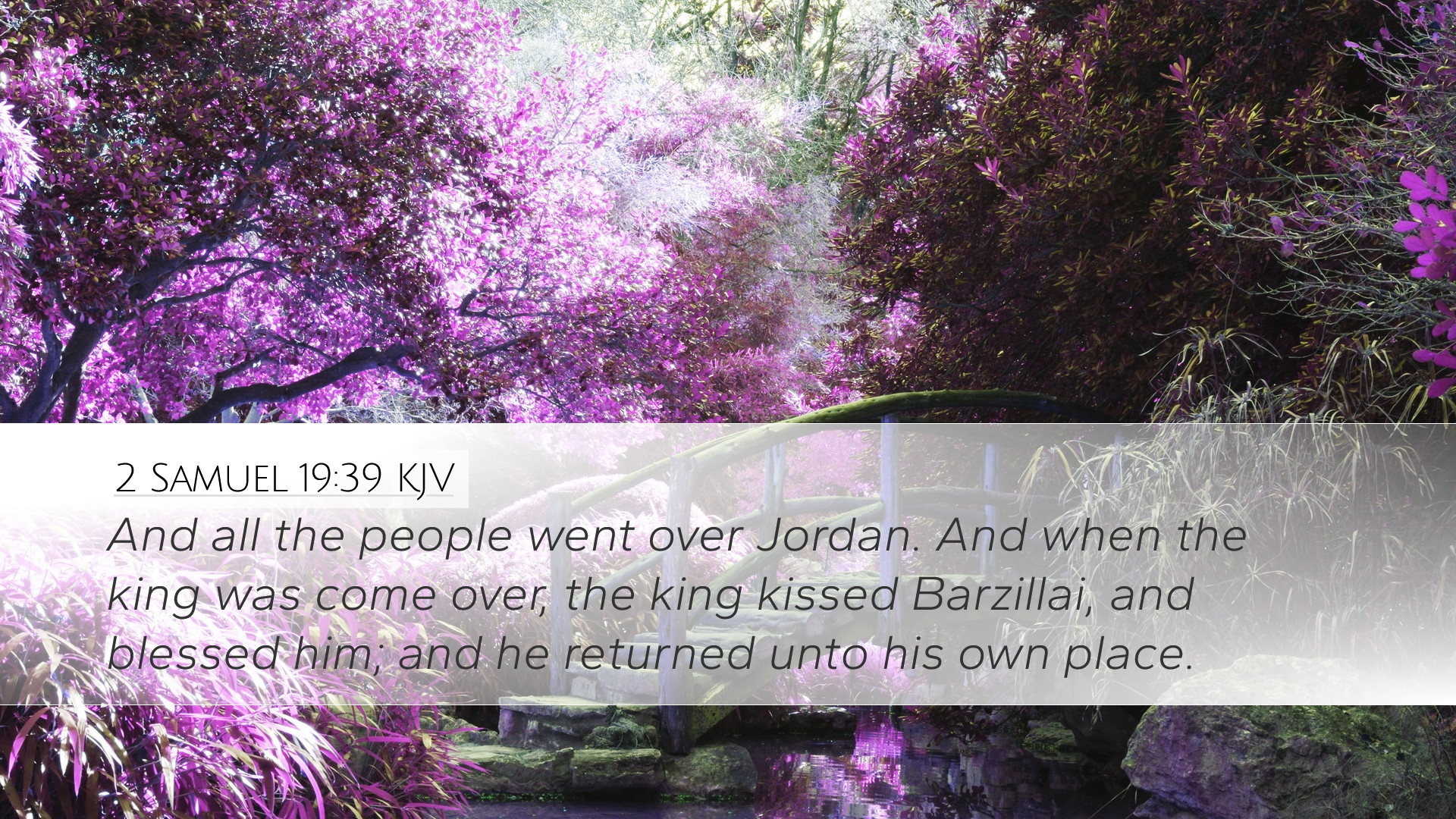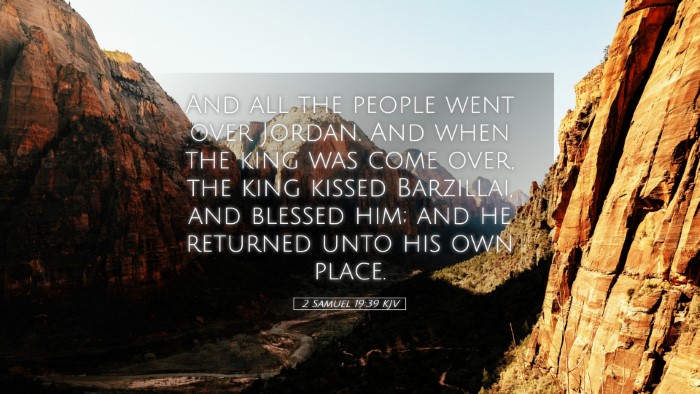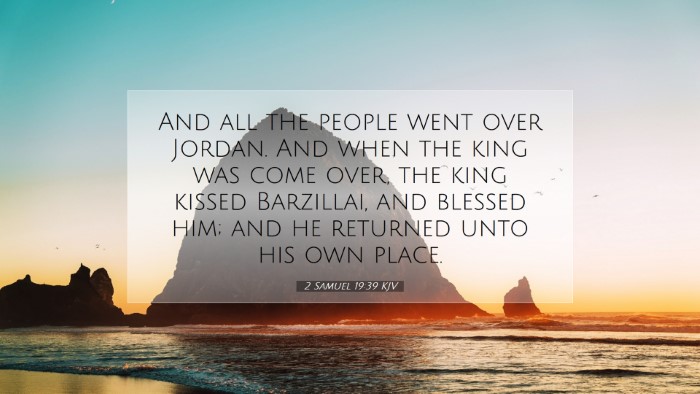Commentary on 2 Samuel 19:39
Bible Verse: "And all the people went over Jordan: and when the king was come over, the king kissed Barzillai, and blessed him; and he returned unto his own place."
Introduction
2 Samuel 19:39 represents a poignant moment of recognition and gratitude between King David and Barzillai the Gileadite. This verse encapsulates themes of loyalty, honor, and the bittersweet nature of farewells. In the wider context of the narrative, it illustrates the complexities of human relationships intertwined with political dynamics but also highlights the virtue of recognizing those who have aided in times of distress.
Contextual Analysis
Following Absalom’s rebellion and the subsequent civil strife, King David found himself in a state of vulnerability. Barzillai played a crucial role during David's flight from Jerusalem by providing him with provisions and shelter. In this verse, we see the culmination of David's gratitude towards Barzillai as they both cross back over the Jordan River, symbolizing a return to stability.
Insights from Public Domain Commentaries
Matthew Henry’s Commentary
Henry draws attention to the deep emotional connection between David and Barzillai. He emphasizes the loyalty of Barzillai, who at an advanced age selflessly supported David during a perilous time. Matthew Henry posits that Barzillai’s actions exemplify true friendship and devotion. Moreover, Henry notes how David’s kiss and blessing reflect royal acknowledgment and appreciation, serving as a poignant reminder that those who contribute to our success must be honored.
Albert Barnes’ Notes on the Bible
Barnes elaborates on the significance of Barzillai in the broader theme of loyalty and providence. He points out that Barzillai’s well-timed support was not merely an act of charity but a calculated choice that played a role in preserving the reign of David. Barnes appreciates the return of the king to Jerusalem, which can be interpreted as a metaphor for restoration in both personal and national contexts. Furthermore, he highlights that Barzillai’s humility, in returning to his place, showcases a character that does not seek reward but finds fulfillment in service.
Adam Clarke’s Commentary
Clarke focuses on the poetic nature of the interactions between David and Barzillai. He describes the act of kissing as a cultural gesture of deep respect and gratitude. Clarke further interprets this interaction as a lesson in humility and integrity. He suggests that Barzillai’s choice to return home rather than join David’s court symbolizes an understanding of one’s role and limitations. This brings forth the biblical principle that loyalty is multidimensional—it can be expressed in service without seeking position or power.
Theological Implications
This verse serves as a reminder of the importance of recognizing the contributions of others in a communal faith journey. It provides a theological lens through which to view acts of kindness and loyalty as reflections of God’s grace in human relationships. The interaction between David and Barzillai can be understood as an embodiment of mutual respect and honor, principles that are crucial in Christian fellowship.
Lessons for Today’s Believers
- Value of Loyalty: Just as Barzillai demonstrated unwavering support for David, modern believers are called to be loyal to one another, especially in challenging times.
- Acknowledge Contributions: Followers of Christ should take deliberate steps to recognize and bless those who have helped them, nurturing a culture of gratitude in their communities.
- Humility in Service: Barzillai’s humility provides an example that service is most potent when done without the desire for recognition or reward.
- Restoration and Reconciliation: The crossing over the Jordan can be viewed as a metaphor for reconciling past conflicts and moving towards a future marked by cohesiveness and unity.
Conclusion
2 Samuel 19:39 stands as a testament to the enduring values of loyalty, gratitude, and humility within the narrative of King David’s life. Through the insights derived from key commentators, this verse invites readers to reflect on their relationships with others, encouraging a spirit of honor and appreciation. Ultimately, it reinforces the biblical ideal that true greatness is found in service to others, embodying the heart of Christ-like leadership.


